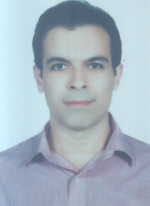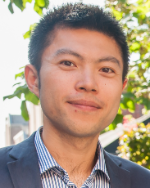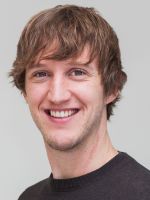events - Page 41
Richard Ruiz, Durham University
Weekly Theory Seminar.
Master of Science Hamed Panahi at Department of Physics will be defending the thesis
“Maturation processes and simulation of fracturing and flow of organic substances from immature shales and consequence on primary migration”
for the degree of PhD
Doctoral candidate Master in Physics Hamed Panahi at Department of Physics will give a trial lecture on the given topic:
"Strain localization in porous rocks"
Master of Science Simon Feigl at Department of Physics will be defending the thesis
“Novel Pixel-Detector Developments for Upgrades of the ATLAS Central Tracking System at the LHC”
for the degree of PhD
Doctoral candidate Master in Physics Simon Feigl at Department of Physics will give a trial lecture on the given topic:
"Discovery of Gravitational Waves"
Douglas Lundholm, KTH Stockholm
Quantum systems confined to planar geometries may exhibit effective particles with unusual statistics, known as anyons. These can be modeled as identical particles (either bosons or fermions) in 2D with magnetic flux attached to them, resulting in a notoriously difficult many-body problem. I plan to review some recent progress on understanding the basic properties of the anyon gas, including its emergence in the fractional quantum Hall setting, the validity of an average-field description for almost-bosonic anyons, as well as rigorous estimates for the ground-state energy of the ideal and the extended gas. The talk will be based on work in collaborations with M. Correggi, R. Duboscq, S. Larson, V. Qvarfordt, N. Rougerie, R. Seiringer and J. P. Solovej.
(The slides will be available here)
A Computational Environment for Multiscale Modelling
The 25th Nordic Particle Physics Meeting (Spåtind 2018) will take place at the Thon Hotel in Skeikampen (Norway), from Tuesday, January 2 to Sunday, January 7, 2018.
Monte Carlo Simulations of Magnetism in LiNiPO4
Cedric Wieland, Durham University
Weekly Theory Seminar.
Modelling of cellular high-dose effects in radiotherapy: A comparative analysis of the linear-quadratic and the universal survival curve models for cell carcinoma of the uterine cervix
Cand. Scient. Fred-Johan Pettersen at Department of Physics will be defending the thesis
"Bioimpedance as a tool in Cardiac resyncronisation therapy"
for the degree of PhD
Doctoral candidate Cand. Scient. Fred-Johan Pettersen at Department of Physics will give a trial lecture on the given topic:
"Bionics in biomedical engineering. An overview over the field and the biotechnical issues."
Method for in vitro Cell Irradiation with Low Energy Protons
"Dark Matter Gamma-Ray Signal Searches with the Cherenkov Telescope Array"
Unconventional samples and imaging techniques in condensed matter physics
Master of Science Chengxin Zhao at Department of Physics will be defending the thesis
“A radiation tolerance study of the ALICE TPC Readout Control Unit 2”
for the degree of PhD
Doctoral candidate Chengxin Zhao at Department of Physics will give a trial lecture on the given topic:
"Machine/Deep Learning and Neural Nets — Important techniques valuable for analysis of LHC experiments"
Speeding up ab-initio molescular dynamics with artificial neural Networks
Mauro Valli, INFN Rome
Weekly Theory Seminar, and also part of the seminar series of the Strategic Dark Matter Initiative.
Jan Heisig, RWTH Aachen
The origin and nature of the dark matter in the Universe is one of the most pressing questions in fundamental physics. The combination of particle physics and cosmology has proven to be a successful avenue leading to the well-established theory of big bang nucleosynthesis that explains the primordial abundances of light elements. In the similar manner an extrapolation to even earlier times in the Universe has led to the WIMP (Weakly Interacting Massive Particle) freeze-out paradigm - one of the best motivated explanations of the dark matter relic abundance measured today. However, despite an enormous experimental effort no conclusive hint for WIMPs has been found, putting pressure on the WIMP dark matter explanation. In this talk we examine new avenues beyond the standard WIMP picture. We show that scrutinizing the well-known co-annihilation scenario and dropping the commonly made assumption of chemical equilibrium between co-annihilating partners offers new phenomenological possibilities. By solving the full coupled set of Boltzmann equations we find solutions that accommodate the measured dark matter density while requiring very small couplings that are in accordance with current null-results in WIMP searches. [continued below]
(The slides will be available here)
The Modular Symmetric Renormalization Group Flow of the Quantum Hall Effect
Master of Science Jonas Gliß at Department of Physics will be defending the thesis
"Passive UV remote sensing of volcanic sulphur and halogen emissions"
for the degree of PhD
Doctoral candidate Master in Physics Jonas Gliß at Department of Physics will give a trial lecture on the given topic:
"Effects from ash and aerosols in volcanic plumes on SO2 emission measurements, in specific using UV-cameras".
Thomas Konstandin, DESY
I will give an overview over the potential impact of (recent and future) observations of gravitational waves on cosmology and particle physics. This ranges from the measurement of the equation of state of QCD and the Hubble expansion parameter to (black hole) dark matter and inflation. I will dwell a little bit more on the connection to cosmological phase transitions that are mostly interesting to future space-based gravitational wave observatories.
(The slides will be available here)

.jpg?alt=listing)


